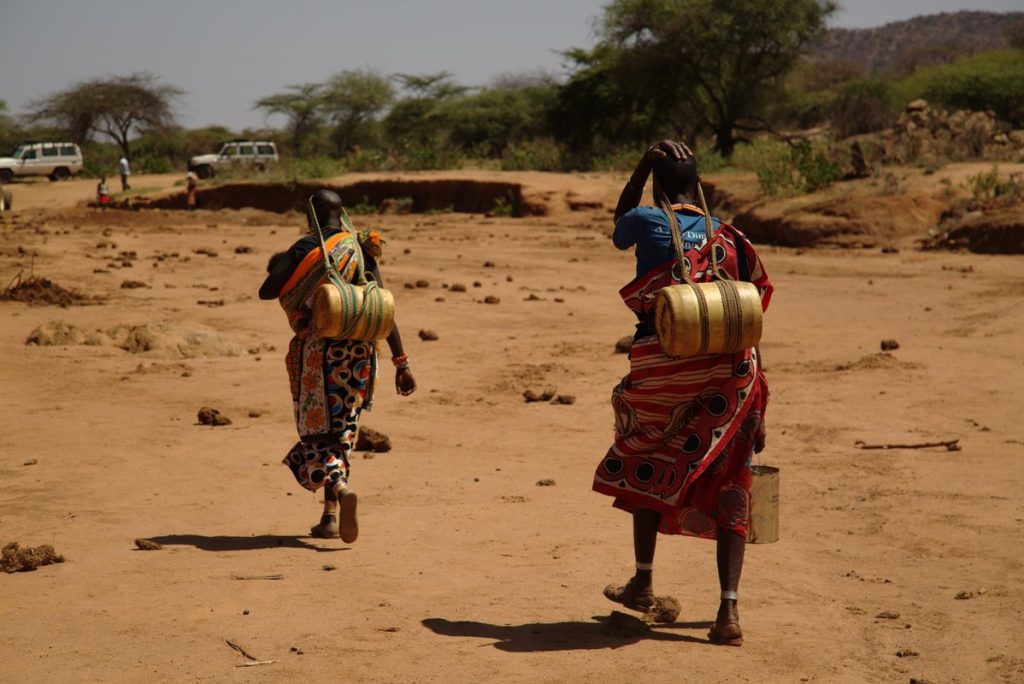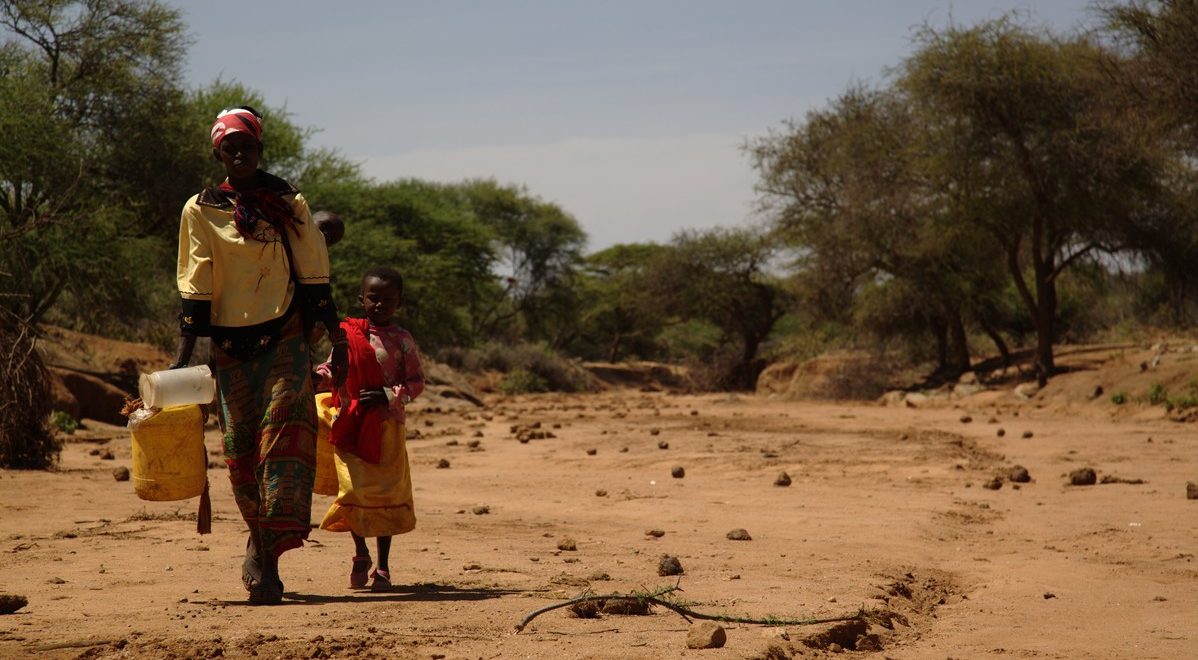By John Kisimir, ActionAid International
I have driven on this road before, not as an aid worker but an activist in wildlife issues. I looked to my left as our vehicle slowed down on the river just before Labasarek town in Isiolo County.
Three women were carrying yellow plastic water containers through the dry river bed, but something else caught my eyes and my heart skipped a beat.
There was a lot of elephant dung, scattered all over. They looked fresh. We stopped to have a look and surely a herd of elephants was up the hill, gracefully walking away.
How could this be?
This particular spot is the battleground between a thirsty community and hundreds of elephants. Almost all river sources have dried up. Women and young girls come here to this particular spot because they could dig into the sand and find water. Elephants from the nearby wildlife sanctuaries do the same because there is nowhere else where they can find water.
So, it has been a hide-and-seek game for the last two months. The timing on when to go for water has to be right for people and elephants but the elephants do have the upper hand for now – they can stay at the water point for as long as they want. Women like Christine and Consolata will just have to wait until the elephants leave.
It is the safety of women like Christine and Consolata that ActionAid is worried about – not necessarily from the risk from wildlife but from gender based violence.

Women walking across a dried-up river in Isiolo, Kenya. Photo: ActionAid
As the drought that has engulfed a chunk of Kenya’s arid regions gains momentum, drying up rivers and other sources of water, women are being forced to walk longer distances to find water. The distances vary from 3km to 9km. These distances can expose them to abuse from sex predators.
Even though Christine and Consolata have not had safety issues from humans, they worry about it. This community has no men in their homes. Most have left with livestock in order to find pasture in private ranches many miles away. Some have not returned home in three months while some come occasionally. So women worry for their safety.
“We walk in groups to ensure that we are safe,” Christine said mentioning that three people were killed by elephants just last month.
ActionAid delivered food to this community today, it is a meticulous process managed by women for women. Enough training has been done for the leaders who explain to the community what food has been delivered and what everyone is entitled to. ActionAid is also delivering portable water to the affected communities as well as developing sustainable water structures like earth dams.
Even though, Makena Mwobobia, ActionAid Kenya’s Head of Programs believes that delivering food to the hungry and water to the thirsty is important, she also stressed that women must be protected so that no one takes advantage by using humanitarian aid to ask for sexual favors.
“Sex for exchange of food and fodder in some parts of the country is becoming a problem,” she said. “We must protect women and girls. No girl should be violated just because she does not have food.”
The original version of this post is found here.


